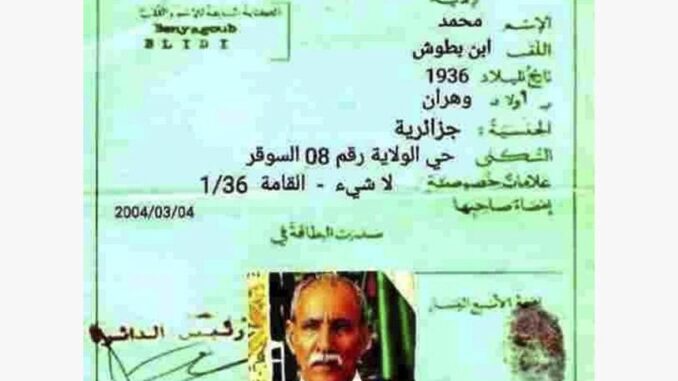
The case of the Polisario leader Brahim Ghali, a wanted criminal who was admitted at a Spanish hospital after entering the country in secrecy using an Algerian passport with a false identity, “is a test of the reliability and sincerity of Moroccan-Spanish relations,” said Moroccan Foreign Minister Nasser Bourita.
In an interview with the Spanish news agency “EFE”, published Saturday, Bourita said this case “is a test of the reliability of our relations and of their sincerity, or whether they are just a slogan.”
Morocco is still waiting for “a satisfactory and convincing answer” from the Spanish government regarding its decision to allow the so-called Brahim Ghali, who is prosecuted by the Spanish justice for crimes of genocide and terrorism, to enter its territory, he said.
“Why did the Spanish authorities feel that Morocco should not be informed? Why did they prefer to coordinate with Morocco’s opponents? Is it normal that we learned about the case through the media?” insisted the Moroccan FM, wondering if Spain “wanted to sacrifice its bilateral relationship” because of the case of the so-called Brahim Ghali.
Recalling that Morocco has always supported Spain in the face of Catalan separatism, Bourita said that “when Spain was faced with separatism, Morocco was very clear, and at the highest level…We rejected any contact and interaction with them (the Catalans) and informed our partners. When they (the Catalans) asked us to receive them at the ministry, we demanded that a member of the Spanish embassy be present.”
“With partners, we do not maneuver behind their backs on a fundamental issue for Morocco,” said Bourita, adding that before moving forward in bilateral relations “we must first clarify things.”
The so-called Brahim Ghali “is a rapist who has tolerated slavery, torture, war crimes, child soldiers and genocide, and Spain knows this before anyone else. Does she want to sacrifice her relationship with Morocco for this person?” the minister questioned.
On the complaints filed by the victims of Brahim Ghali, including the Sahrawi Association for the Defense of Human Rights (ASADEDH) and the Canary Association of Victims of Terrorism (ACAVITE), Bourita wondered “where is the Spanish justice in all this? Has no magistrate deemed it necessary to act on these complaints?
Morocco and Spain maintain “a global partnership” which has political, economic, commercial, human and security dimensions, and this is where the migration issue comes in, Bourita said.
We should not think that it is “a relationship à la carte: when it comes to plotting with Algeria and the Polisario, Morocco is off Spain’s radar, but when it comes to migration or terrorism, it becomes important again, the minister argued.
In this sense, Bourita said that Morocco refuses to be “the policeman” of the European Union on migration issues.
“Migration needs a comprehensive approach, not only a financial one: we must be partners in the vision, in the formulation of strategies, and not only in their implementation in exchange for a sum of money,” he added.
Migration issues in Europe depend on political issues: “political polls, pressures and electoral deadlines lead Europeans to short-term thinking,” Bourita deplored, calling “not to demonize the migration phenomenon.”
In the interview, the Moroccan official also brought up the dire situation prevailing in the Tindouf camps, stating that the case of Brahim Ghali reflects “the double face of the polisario: while its leaders are entitled to a private plane and a new identity, population in Tindouf has neither masks nor hydroalcoholic gel, while it is ravaged by the Covid-19 in the most total indifference.”
